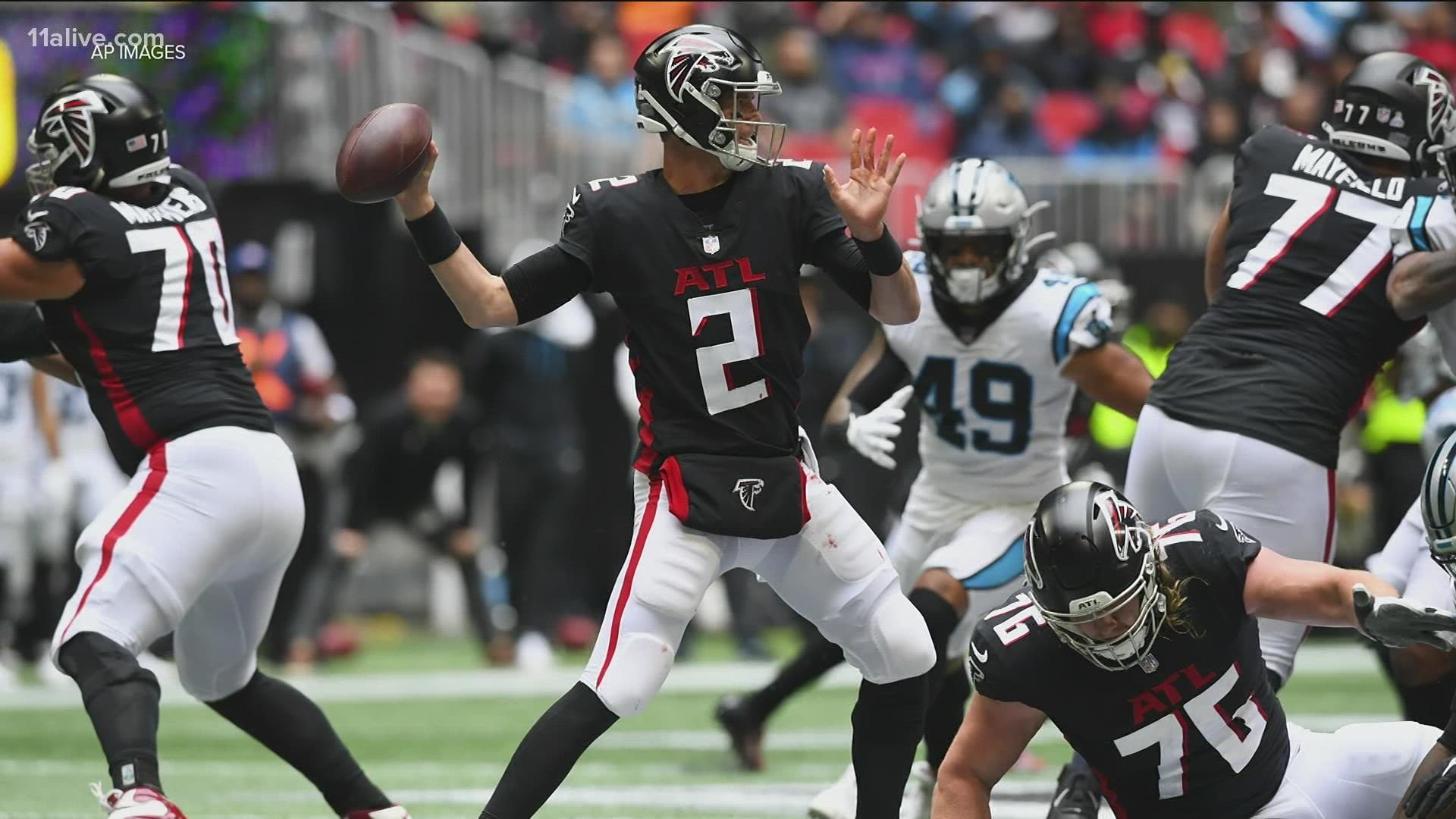ATLANTA — The Atlanta Falcons top wide receiver posted to his social media accounts Sunday that he would be stepping away from football to focus on his "mental wellbeing."
His absence Sunday, followed him skipping the team's trip to London earlier in October to play the New York Jets. At the time, the team cited "personal reasons" for the wide receiver's absence.
Ridley rejoined the team the next week for practice and played in the game against the Miami Dolphins on October 24.
But then Sunday morning, he was listed as "out" for the team's match-up against the Panthers.
The statement didn't provide a timeline for his return to the NFL, and while the Falcons felt Ridley's absence as they lost on the field Sunday, off the field, the team is standing by him.
"I'll let Calvin's statement speak for him. I'm never going to speak for another player or another coach," Falcons Head Coach Arthur Smith said in a post-game interview, where he respected Ridley's presumed personal issues when asked about the wide receiver.
"Certainly wish Calvin all the best," said Quarterback Matt Ryan after the game. "We love him and support him. He is a great friend and a great person. We all support him as he is going through this."
Ridley was a two-time national champion with the University of Alabama before being drafted by the Falcons during the first round of the NFL draft in 2018.
He eventually became the team's top wide receiver after Julio Jones joined the Tennesse Titans during the off-season.
Ridley now joins a growing list of elite athletes, including tennis star Naomi Osaka and Olympic gymnast Simone Biles, who have paused their athletic careers to address their mental health.
"I don't necessarily think it is a coincidence," said Dr. Candice Williams, an athletic counselor at Ohio State University. "I think more and more athletes are feeling empowered and feeling led to do that because they've seen so many other athletes do that as well."
Williams said more and more athletes are treating mental health concerns the same as a physical injury, by taking the time and focus needed to heal.
"Athletes are prioritizing that while I am this elite athlete, I am also a whole person as well," Williams said. "When I take off that jersey or step off that field, those lights and that crowd don't follow me into the real-life things I have to deal with."
There are two concerns for athletes facing mental health struggles. First is the person's overall personal health and need to address personal issues in their life, causing mental health problems.
Then there is also the connection between mental health and physical health.
During the Olympics, Simone Biles said she began suffering from the twisties, meaning she couldn't tell up from down while mid-air during her routines - an issue possibly connected to her mental health struggles.
For NFL players in a league known for fast action and hard hits, not having their head in the game could lead to serious injuries.
"It can open up the athlete to be more susceptible to injuries or to performing in a way that they don't want to, in terms that are not favorable for them or for the team," Williams said.
In an environment of multi-million dollar contracts, endorsement deals, and championship pressure, there are also reasons why athletes may be reluctant to seek help as they attempt to avoid raising any red flags.
"Athletes have those real concerns about 'will this information be held against me if I'm going up for a contract, or I'm being drafted with a team.' Where I work at, it's being able to help them understand that you want to be proactive about your health in general but also your mental health," Williams added.
She said being proactive means seeking out help or talking with a specialist even if you don't have a pressing problem.

